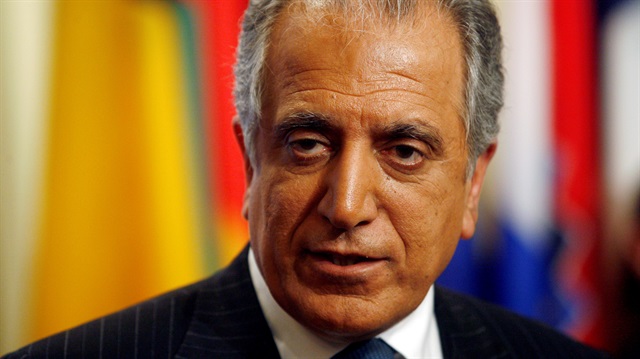
US veteran diplomat Zalmay Khalilzad sought Pakistan’s help to bring Afghan Taliban to negotiation table
Pakistan told Washington that no single country could bring the Afghan Taliban to the negotiation table since Islamabad has lost its influence on the Taliban, an official said on Friday.
On Oct. 9, a veteran U.S. diplomat Zalmay Khalilzad, Wasington's newly appointed representative for finding a peaceful and political solution to the 17-year-long war in Afghanistan, has visited Islamabad where he met Pakistani officials, including Foreign Minister Shah Mehmood Qureshi.
During his meetings, Khalilzad sought Pakistan's help to bring Afghan Taliban to the negotiation table.
"Pakistan fully supports the policy of negotiations with Taliban, it is a shared responsibility to bring the Taliban to the negotiation table and no single country can be expected to undertake this task unilaterally," Mohammad Faisal, spokesman of the Foreign Ministry told reporters on Thursday.
The spokesman explained that the role of the U.S., the Afghan government and other regional players is equally important and that is why ambassador Khalilzad is visiting other countries including the United Arab Emirates, Qatar and Saudi Arabia to elicit their support.
"I think U.S. and Afghan intelligence agency, NDS, both had played their role in the broken down 2015 peace process and later they missed another opportunity in 2016, that's why now Taliban don't trust their sincerity," retired Brig. Said Nazir told Anadolu Agency.
However, Nazir believed that Islamabad still enjoys some influence on the Taliban, advancing that the U.S. could undertake confidence-building initiatives such as releasing Taliban prisoners and removing the names of their leadership from the UN black list.
In July, Afghan officials said U.S. and Taliban leaders met in Qatar to discuss ways to lay the groundwork for peace talks.
"After the July meeting, there was another meeting between U.S. and Taliban leaders scheduled in September. However, according to my sources it was postponed to give some time to Khalilzad for preparations and now it is expected to be held in the coming weeks," Tahir Khan, an Islamabad-based Afghan affairs analyst said.
Khan added the Khalilzad's appointment showed the U.S. now wants to find a political solution to the Afghan war since they failed to defeat the Taliban with force.
A seven-member delegation of the Afghan High Peace Council, headed by Maulvi Attaullah Ludin, visited Pakistan last week and met Maulana Sami-ul-Haq, head of Jamiat Ulema-e-Islam, known as the father of the Afghan Taliban and sought his help in restoring peace in the country.
Ul-Haq assured an Afghan government-sponsored peace council that they will do their part to help end Afghanistan’s conflict.
However, Tahir Khan said he believed the Taliban were not ready to sit down with the Afghan government as first they want to know when the U.S. will withdraw its forces from Afghanistan.
Afghan Taliban spokesman Zabihullah Mujahid refrained to comment on Khalilzad's visit to Kabul, Islamabad and other Gulf countries.
However, in a statement issued on Oct. 7, Mujahid said the issue of Afghanistan has no military solution.
"Foreign invaders should withdraw their forces from our homeland by ending their occupation and ceasing further bloodshed of innocent Afghans by leaving the Afghans to decide about their country and future themselves," Mujahid said in his statement.






